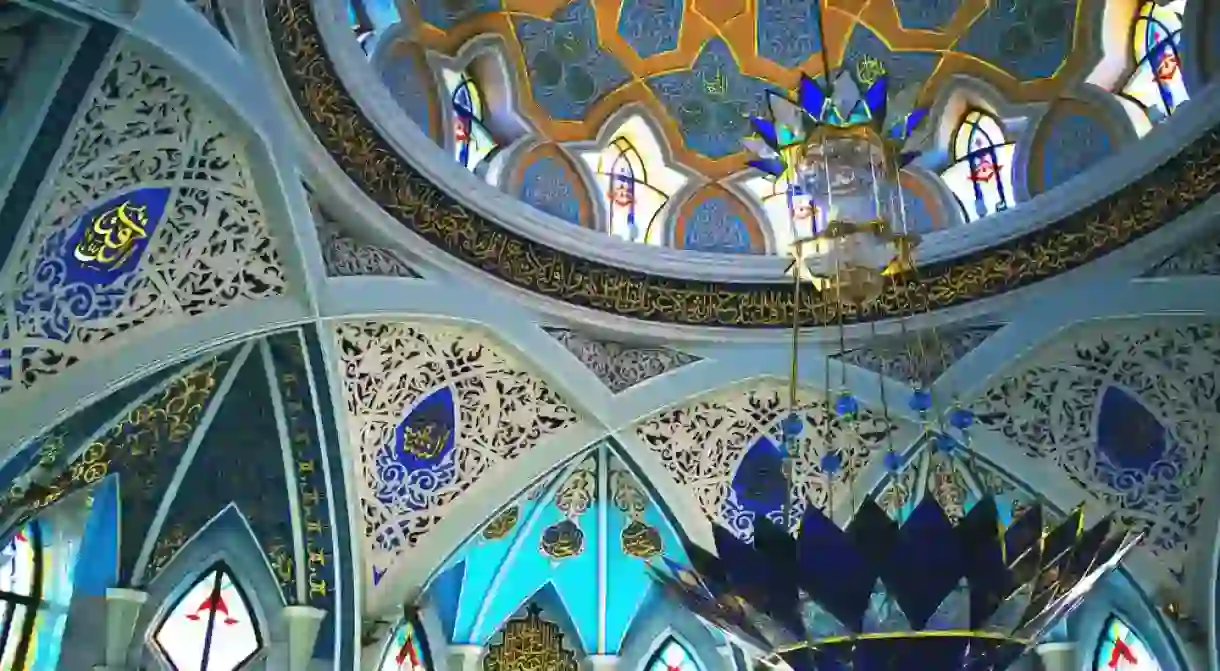8 Moments in History That Shaped Kazan

Kazan has undergone many different transformations throughout the centuries, with a heritage marked by feuding empires, bloody battles and the Soviet regime. It has also evolved over time to become a cultured, modern city, striving towards an even brighter future. A Tatar-Mongol stronghold and a vibrant artsy hub, step back in time to see why this World Cup host city is one of Russia‘s brightest gems.
Kazan’s beginnings
The city established its importance in the region by becoming a significant Volga trade town. While it is disputed as to whether the Volgar-Tatars or the Golden Horde established Kazan, the city’s official birthdate is 1005. This is before a Mongol army defeated the Volgars as the Golden Horde gained territory in the 13th century and grew to become the largest Mongol-Turkic empire of medieval times.

Khanate of Kazan
One of the Golden Horde’s successor states, the Kazan Khanate, firmly established the city as the new empire’s capital in the early 15th century. By this time the city was the most important trade centre in the region and the practice of slavery grew under the Khanate. Many of the slaves were Russians, captured during raids and pillages, who were forced to convert to Islam upon being taken captive.
Siege of Kazan
Building, Mosque

In 1552 Ivan the Terrible declared war on Kazan, and brought the city into the realm of the Russian Empire. In doing so he destroyed the city, burning it almost to the ground, including the original Kul Sherif Mosque and other significant Islamic and Tatar buildings. He also killed the majority of Kazan’s residents and set 800 odd slaves free. In doing so he abolished the region’s practice of slavery forever. He sent Tatars away to settlements and ordered the city’s Kremlin to be built on the grounds of the Khan’s castle. World Heritage listed, it is now the only surviving Tatar fortress in the world.
Times of Trouble
Kazan tried to declare independence from Russia in 1612 during the Times of Trouble. Marked by a widespread famine that killed around one third of the Russian population, war and occupation, the Times of Trouble was the interim between the end of the Rurik Dynasty in 1598 and the establishment of the Romanov Dynasty in 1613. Kazan’s move for independence however, was squashed by the army of Minin, a merchant from Nizhny Novgorod, who defended Russia against Poland at the start of the 17th century, and so tensions between state and the Tatars and Mongol-Turks of Kazan remained.
Kazan’s golden age
Kazan finally found peace under their reign of Catherine the Great, from 1762. During this period, and into the 19th century, Tatar culture has somewhat of a revival period. By royal decree, the city was permitted to build Islamic places of worship and the residents were encouraged to actively foster Tatar traditions and community. This was also the period when many of Kazan’s impressive churches were built and universities were created.

University city
University
Soviet dissolution
With the collapse of the USSR, the union’s states were restructured. While Tatarstan was considered an autonomous Soviet state, at the end of the USSR, the Republic of Tatarstan was formed. The new state solidified its sovereignty by establishing its own independent government, constitution and capital, Kazan. The republic regained much of the Tatar cultural heritage repressed during Soviet times, which cemented Kazan as Russia’s Tatar cultural core.
Russia’s sporting capital
Russia announced Kazan as its sporting capital in 2009, a label the city has embraced ever since. The slick Kazan Arena was completed in 2013, designed by the same team who designed the Sochi Olympic Stadium. Home stadium for local sporting champs Kazan FC , Kazan Arena has hosted the 2013 Summer World University Games, the 2014 World Fencing Championships and the 2015 World Aquatics Championships. As a 2018 World Cup host city, this state-of-the-art sports complex is set to hold some of the most exciting matches of the competition.














